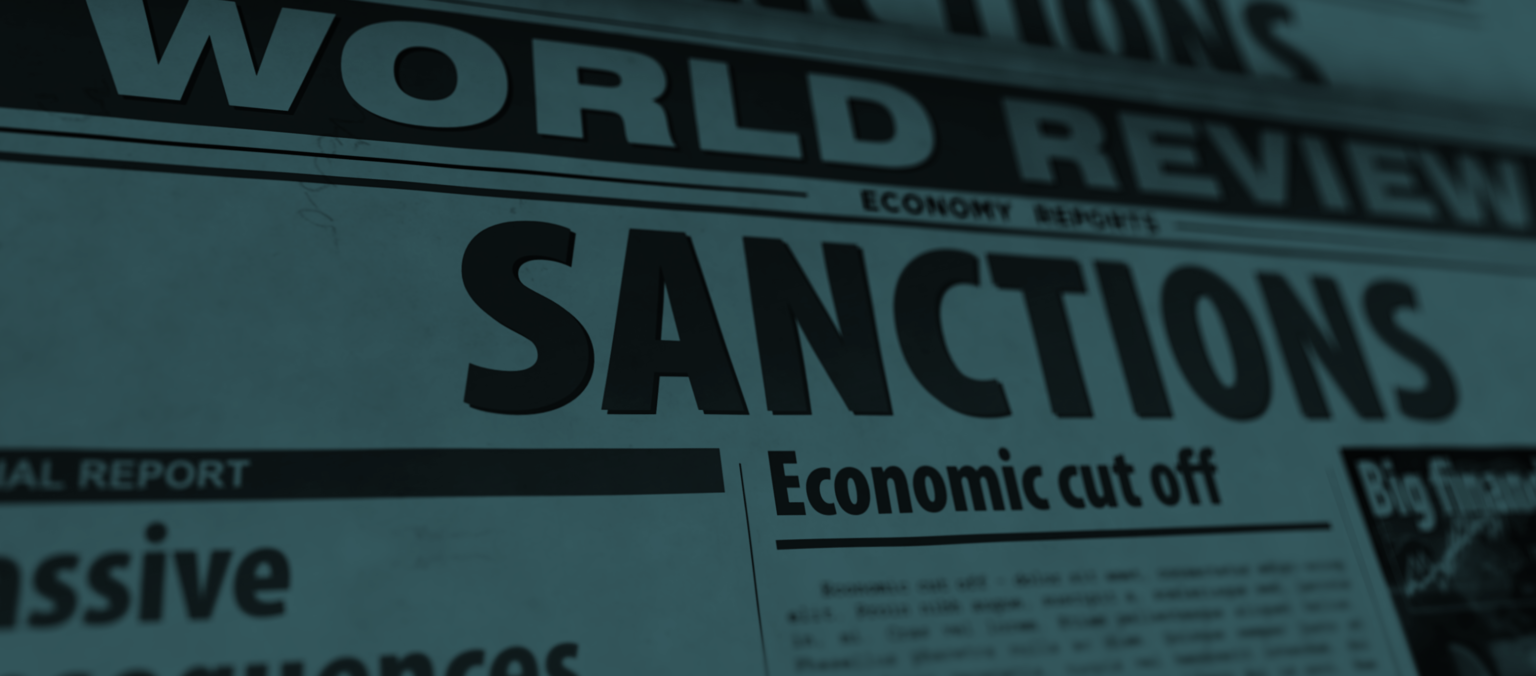In 2022, sanctions compliance took on a new level of importance for firms across the world, as geopolitical events, such as Russia’s invasion of Ukraine, complicated the risk landscape. Although Russia’s invasion captured headlines and the attention of compliance officers, there were plenty of additional sanctions concerns throughout the year and, in 2023, it’s important that firms maintain focus on the effectiveness of screening processes in order to avoid penalties.
In a changing risk landscape, your sanctions compliance solution must be versatile enough to adapt to new designations and updates, and robust enough to ensure that customers are screened thoroughly. To help your compliance team stay ahead of its sanctions challenges in 2023, let’s take a look at some of the most notable trends on the horizon.
Sanctions 2023: What You Need to Know
Russia
In February 2022, Western governments announced sanctions against Russia and President Vladimir Putin’s regime as a response to the invasion of Ukraine – and imposed additional restrictions as the conflict progressed. As of February 2023, the UK had imposed sanctions against over 1,200 people associated with Putin’s regime, and over 120 businesses. The US, the EU, Canada, and other Western countries also implemented significant Russia sanctions programmes – a collective response that caused a dramatic contraction in the Russian economy and created a deficit of around $47 billion. The deficit figure is based on official Russian government data and is likely to be much higher than claimed.
The global sanctions pressure on Russia will continue into 2023. While it seems unlikely there will be new measures against Russia’s oil and gas industry, the most recent measures (as of February 2023) have a broad scope:
- On February 8, the UK announced a new round of Russia sanctions, predominantly targeting five organisations supplying the Russian military with products and services, and five individuals with financial connections to Putin’s network of luxury homes.
- On February 9, the UK and the US jointly announced sanctions against Russian cybercriminals, indicating a new focus on Russian attempts to perpetrate ransomware attacks against the rest of the world.
- The EU signalled that it will maintain its own sanctions pressure on Russia with a focus on countering Russian disinformation. In February, the EU announced a new round of export bans worth €10 billion against Russian politicians, military leaders and state propagandists.
Iran
While Russia sanctions are an important global anti-money laundering (AML) and counter-financing of terrorism (CFT) focus, it’s important to remember that there is a wider sanctions landscape with critical compliance considerations. In particular, Iran will likely continue to be a sanctions priority in 2023, with Western nations imposing restrictions in response to the Iranian government’s ongoing repression of human rights protestors and attempts to develop nuclear weapons.
With that in mind, in January 2023, the UK sanctioned Iran’s prosecutor general, Mohammad Jafar Montazeri, in response to the execution of British-Iranian dual national Alireza Akbari. Similarly, the US sanctioned six Iranian petrochemical manufacturers following the sale of fuel to customers in Malaysia and Singapore. The EU also announced a new round of Iran sanctions, against multiple individuals and entities, in response to the Iranian government’s brutal crackdown on human rights protestors.
China
Following revelations about espionage activities in North America, including a spy balloon that entered US airspace in early February, the US quickly announced new sanctions against China. The US’ existing China sanctions include targets responsible for both espionage and human rights violations, but following the spy balloon incident, the Commerce Department set out new measures against several Chinese military tech firms that contributed to the balloon programme, and that pose a threat to US national security.
Matthew Axelrod, Assistant Secretary of Commerce for Export Enforcement, suggested that the US was renewing its sanctions focus on China as a way to counter the Chinese government’s surveillance programmes which have “violated the airspace of the United States and more than forty countries.”

Sanctions Evasion
2022 saw a dramatic increase in the complexity and quantity of global sanctions. Depending on global events, including whether Russia abandons or continues its campaign against Ukraine, the pace of that increase may slow in 2023, but firms must nonetheless be prepared for the emergence of new strategies to evade sanctions restrictions.
Sanctions evasion tactics may include conventional trade diversions, such as recent Russian attempts to move gas shipments through ports in Turkey and the UAE, or the use of shell companies to move money from one financial system to another. Sanctions targets may also seek to exploit technology to conceal their identities, including using untraceable cryptocurrency transactions to move funds across borders.
Russia’s efforts to evade sanctions have prompted a response from Western governments. In February 2023, the US Treasury Department announced that it would be cracking down on third persons that facilitate Russian sanctions evasion “wittingly or unwittingly”. The US’ announcement follows the UK’s introduction of strict liability for sanctions violations in its Second Economic Crime Bill. Under the new rules, the UK government may impose regulatory penalties regardless of whether the offending person knew they were in breach of the rules.
Non-Compliance Risks
Sanctions compliance penalties vary by jurisdiction but entail significant financial and even criminal penalties. Sanctions penalties usually reflect the severity of the offence: in the US, for example, fines can range from thousands, to tens of millions of dollars, and carry lengthy prison terms. The UK’s penalties include a prison sentence of up to 7 years and a fine of £1 million or 50% of the resources involved in the transaction (whichever is greater).
Sanctions violations contributed to a surge in financial penalties in 2022, which saw banks and other financial institutions pay around $5 billion for compliance failures.
Achieving Sanctions Compliance in 2023
The events of 2022 demonstrate just how fast sanctions regulations can change, and how important it is for firms to stay on top of their screening and monitoring obligations. In 2023, the pace of Western sanctions against Russia may slow, especially if the war reaches a stalemate or conclusion, but new measures will continue, including the broadening of existing programmes, and an increased focus on sanctions evasion strategies. In this changing sanctions landscape, the only way for firms to meet their compliance requirements is to integrate technology capable of screening and monitoring customers on a continuous basis – capturing both changes in risk, and attempts to circumvent restrictions.
Ripjar’s Labyrinth Screening platform is designed for purpose, enabling customer name searches against thousands of data sources, including sanctions and watch lists, and adverse media content, in real time, in over 20 languages. Powered by cutting-edge AI, and with intuitive analysis of names, translations, and regional spelling variations, Labyrinth delivers actionable intelligence in seconds, ensuring your firm is able to make crucial compliance decisions quickly, and stay ahead of unexpected challenges in 2023 and beyond.
Learn more about our adverse media screening capabilities: contact us today
Last updated: 3 February 2025





